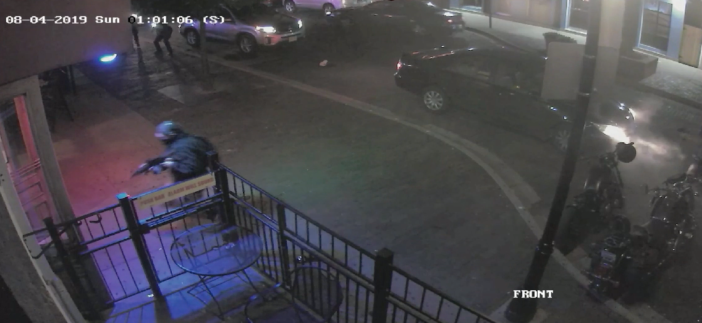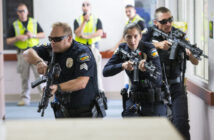Three active shooter incidents in just a matter of days. A total of 34 people killed: three in Gilroy, 22 in El Paso, and nine in Dayton. The number people injured is somewhere around 66.
The shootings and violence reported across the country is more reminiscent of a third world country than of the greatest democracy in the world.
Each of the shootings occurred in an area people felt safe. In Gilroy, a food festival was taking place. Families with children were enjoying a warm summer day. In El Paso, thousands were at a Walmart doing their weekend shopping and preparing for the start of the school year. In Dayton, hundreds of adults were enjoying dinner and the night life.
Within minutes, each was a scene of chaos and carnage. First responders were swift in their response. Years of training prepared each agency in how to respond. Police officers heroically engaged each of the perpetrators.
In Gilroy, the suspect was wounded by officers but took the cowardly way out and took his own life. In El Paso, the suspect surrendered and was quickly taken into custody. In Dayton, the heavily armed suspect was engaged by officers just as he was about to enter a crowded nightclub.
In Dayton, according to surveillance footage, the officers responded with deadly force within 30 seconds. In that time, the suspect was able to get an estimated 41 shots off. Surveillance video captured the sound of gunshots as the suspect was firing while walking down the street.
Police are doing an amazing job responding. They are, however, not the solution. Even the best response can still result in death and serious injury.
What can we collectively do?
Much has been said about the parents of each of these individuals. What they knew and how they responded to their children’s quirky behavior will probably haunt them the rest of their lives. In my experience, parents are often blind to what seems obvious to everyone else. Parents are key to preventing these shootings, but little has been done to support and assist parents of potentially dangerous individuals.
Intervention is a key component of stopping the perpetrators of this kind of insane violence before it ever starts. Those in close contact with these individuals are in the best position to observe behavior clues and do something about it. Students, co-workers, and family members can be the first alarm in stopping the next active shooter.
Reinforcing a “see something say something” culture is another crucial component. During the planning and preparation stage it doesn’t take much to disrupt a potential active shooter. Sometimes contact with a law enforcement agency or mental health professional might be enough to stop plans from moving forward.
Increasing site security across the board would be helpful. Anyone who has ever travelled to Israel has noted the use of security, police, and military in every public venue. It’s everywhere. The costs, however, would be huge. Think about it.
Malls, shopping centers, movie theaters, schools, and every venue where the public converges would have armed security, metal detectors, and screening. It makes us feel safe, but at what cost? I’m not talking dollars but the idea that somehow we have to protect ourselves from ourselves.
We also have to acknowledge that we are living in a society where individuals fill their heads with hate. For the few unbalanced individuals who act on their hate, the consequences are extreme. Those in positions of influence must constantly reinforce that hate has no place in a civil society. These individuals can’t be allowed to find validation for their actions.
While I don’t know how we could address it, the fact that these mass killings are socially contagious is a given. People model their behavior based upon what they have seen. Many of the active shooters in the past, including the Sandy Hook school shooter, did extensive research on previous shootings before acting out on their morbid fantasies. But how do we shut down a free press, citizen journalism, and social media? How do we stop mass killings from being socially contagious?
We also have to be better at dealing with mental health issues sooner. The profile of the angry young male adult seems to have been lived out these past few days. The lack of resiliency amongst our young people is epidemic. Yet ask any parent struggling to deal with their brooding young adults and you’ll find there isn’t a lot of help out there.
What about gun control, you might say? I don’t feel we have the political or social will to approach that issue in a civil manner. Every discussion degrades into a shouting match and nothing gets done. In the meantime, people are still dying.
Prevention and intervention approaches are something we can all wrap our heads around and work toward together so we can all feel safe again.
Joe is a retired police captain. You can reach him at jvargas@behindthebadgeoc.com.
 Behind the Badge
Behind the Badge



